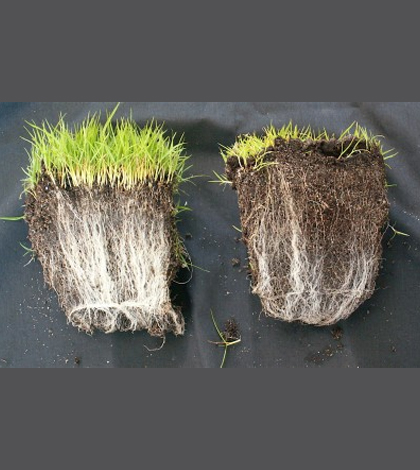Mutually Beneficial Plant Relationships Tend To Stop With Higher Nutrient Loads

The plant on the left has a beneficial relationship with the mycorrhizal fungi around its roots. (Credit: soilcarboniscool.org)
More than 80 percent of Earth’s plant species take part in nutrient exchange with other organisms. These relationships are important for sustaining many types of foundation species like sponges and coral reefs.
But researchers at Florida International University have found that nutrient loading throughout different natural landscapes is changing the shareful relationships to more selfish ones, according to a release. The scientists say that an investigation they’ve just completed shows that, when more nutrients are available — typically phosphorus or nitrogen — plants stop sharing as many resources with animals, fungi and bacteria like they used to.
Researchers at the university performed a large-scale data analysis to come to the conclusion. Full results of their effort are published in the journal Ecology Letters.
Top image: The plant on the left has a beneficial relationship with the mycorrhizal fungi around its roots. (Credit: soilcarboniscool.org)




0 comments